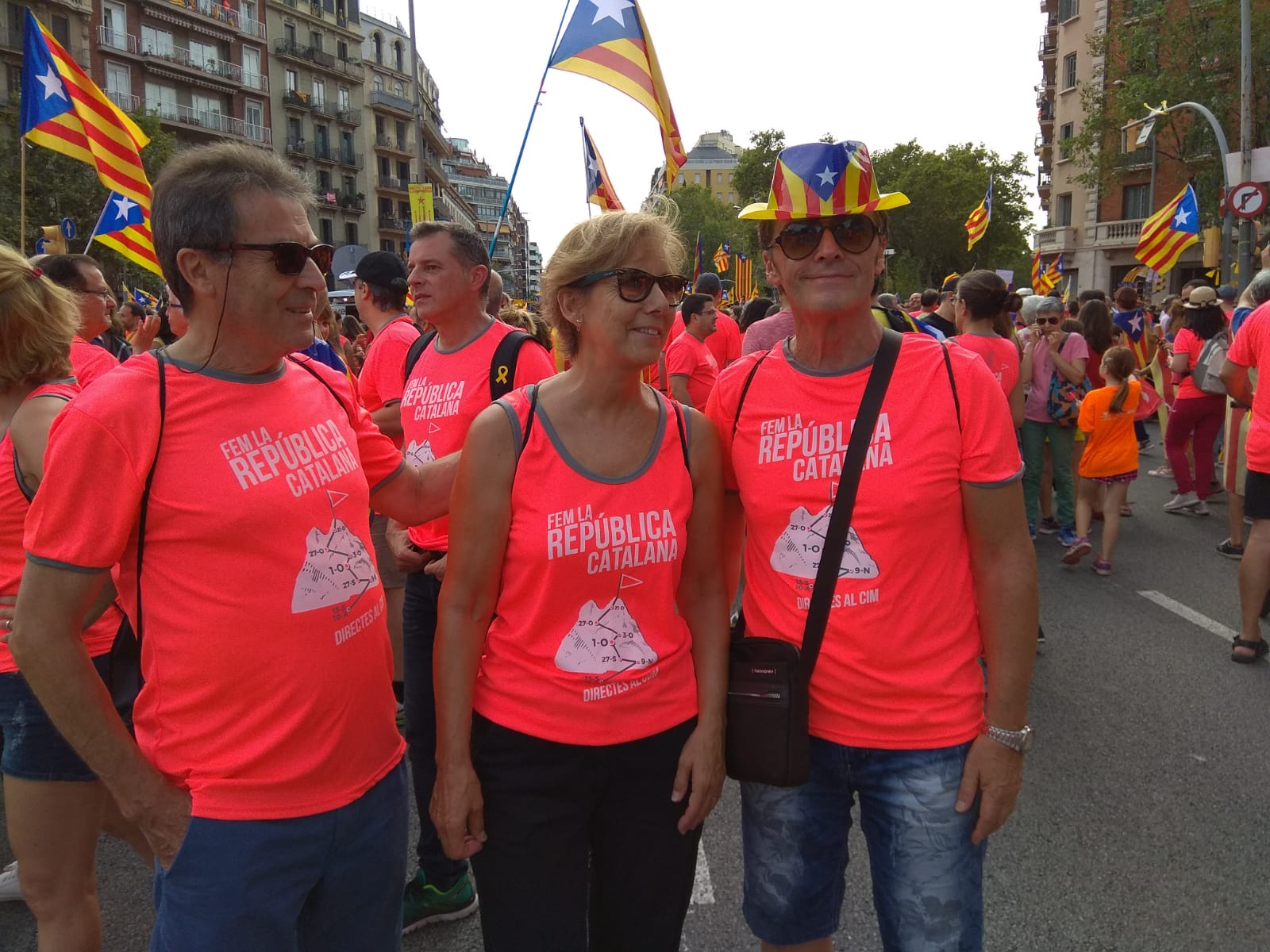Catalonian Independence: A Critically Misrepresented Struggle of Identity

by Tilly Brogan
‘And when you add the location of the photo, make sure you put Barcelona, Catalonia, rather than Barcelona, Spain, as some people get really funny about that.’ This was the advice of the previous intern from whom I took over in the office three months ago, but before I moved here, I hadn’t really given much thought to the issue of Catalan independence in Barcelona. Yes, I’d seen the protests and police violence on the news, but I’d never connected it with a struggle of identity. Least of all did I think it would affect my year abroad; I was English and a foreigner, after all.
I came to Barcelona having not yet made up my mind on whether I supported or opposed Catalan independence. I remember profusely telling myself that I was here to learn Spanish and to immerse myself in Spanish culture. Catalonia was merely the geographical positioning of my placement. But after hearing stories from those that first and foremost identified themselves as Catalan, I found myself irrevocably captivated by the state’s fight for independence. I vowed I would leave here in twelve months having finally made up my mind on where I stood, and I wanted my decision to be my own, not influenced by what I had previously seen and heard on the news.
One comparison that is often made about the relationship between Spain and Catalonia, is that of the relationship between England and Scotland. And as the daughter of an English mother and a Scottish father, I am all too familiar with just how turbulent that can be. The 2014 Scottish referendum had the potential to cause detrimental effects on my close-knit Anglo-Scot family, something thankfully avoided due to our unusually strong familiar ties. Therefore, from the beginning I saw Catalan independence as something harmful and potentially disparaging, particularly to those whose families were caught in the genealogical crossfire.
I soon learnt that the struggle for Catalan independence was a people’s struggle; people that had been severely misrepresented through social networks and news channels. Recent broadcasts have portrayed the Catalan people as violent, threatening, and generally uncontrollable, depicting them as fearless fiends who suddenly want to be different to the rest of Spain’s national citizens. The reality is that the people of Catalonia have been peacefully fighting for independence of state for longer than we think.
It isn’t that today they feel different to the rest of the country, as first and foremost they have always been Catalan and they have never been Spanish. The fight is not for difference then, it’s to remain the same Catalan that they have always been.
Their passion for Catalonia is endearing, and their unapologetic attitude nothing less than captivating. If there is fire it is not so much an attack as one from their tongue. In my second week at the office I asked my colleague if Spaniards had a different sense of humour, only to be greeted with silence. After twenty seconds and a heavily implied replacement of the proper noun, he soon explained exactly just what makes Catalan people laugh. Being Catalan runs through their blood; how do you apologise for your biological makeup? Three weeks ago I started tutoring English, and in one of my very first classes my eight year old student told me that she speaks in Catalan with her friends, her sister, and her mother. She then giggled at the fact that belly rhymes with smelly. For someone who could be considered a Catalan separatist, she wasn’t very threatening.
If you take away the people, the situation here in Catalonia looks like something out of dystopian fiction: an illegal vote, governmental gridlock, and political protests of smoke bombs and police brutality. But add the people back in and it becomes one of the most complex and critical crises of human rights in the twenty first century. Do I agree with complete independence of the state of Catalonia? I’m undecided as of yet. But when I speak to people like Eloi and Lea, I understand that this is more than just a crisis of the Spanish government. It is a crisis of identity, a crisis of misrepresentation, and a crisis of geographical genealogy.
